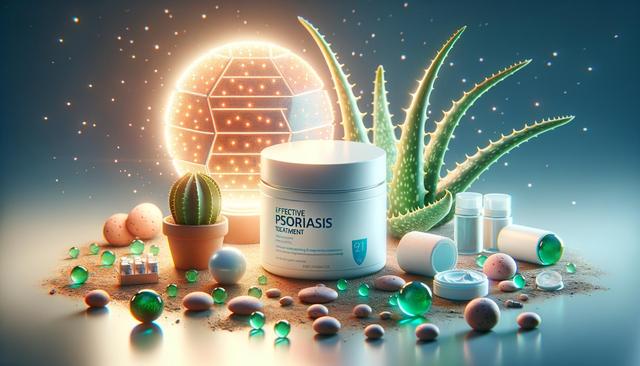Understanding Psoriasis and Its Impact
Psoriasis is a chronic autoimmune condition that speeds up the life cycle of skin cells, leading to red, scaly patches that can cause discomfort and emotional distress. Although it affects individuals differently, common symptoms include itching, burning, and soreness. The condition can appear on various parts of the body and may range from mild to severe. Understanding the nature of psoriasis is crucial in choosing effective treatment methods. Factors such as genetics, environmental triggers, and immune system responses all play a role in the manifestation and progression of the disease. For many, managing psoriasis is an ongoing journey that involves both medical and lifestyle strategies.
Psoriasis is not contagious, but its visible symptoms can lead to social stigma or reduced self-esteem. As such, treatments often aim to do more than just control physical symptoms—they also support overall well-being. Consulting a healthcare provider is the first step in identifying the specific type of psoriasis, which could be plaque, guttate, inverse, pustular, or erythrodermic. Each type may respond differently to various treatment approaches, making individualized care especially important.
Topical Treatments: The First Line of Defense
For many individuals with mild to moderate psoriasis, topical treatments are often the first recommendation. These therapies work directly on the skin to reduce inflammation, ease discomfort, and slow the rapid growth of skin cells. Common topical treatments include:
- Corticosteroids: Used to reduce inflammation and relieve itching.
- Vitamin D analogs: Help slow down skin cell growth.
- Coal tar: An older treatment that helps reduce scaling and itching.
- Salicylic acid: Assists in removing scales and softening plaques.
These treatments can be found in creams, ointments, and shampoos, depending on the affected area. While effective for many, topical treatments may need to be used in combination with other therapies for more persistent or severe cases. Consistent application and following the prescribed regimen are key to achieving the best outcomes. It’s also important to monitor for side effects, especially with long-term use of corticosteroids, which can thin the skin if not used properly.
Phototherapy: Harnessing Light for Relief
Phototherapy, also known as light therapy, is another effective treatment for moderate to severe psoriasis. This method involves exposing the skin to specific wavelengths of ultraviolet (UV) light under medical supervision. There are several types of phototherapy, including:
- UVB narrowband therapy: The most commonly used form, targeting the skin to reduce inflammation and slow cell turnover.
- PUVA (psoralen + UVA): Combines a light-sensitizing medication with UVA light exposure for enhanced effectiveness.
- Excimer laser: Delivers targeted UVB light to specific areas, minimizing exposure to surrounding healthy skin.
Phototherapy can significantly improve symptoms for many individuals, especially when other treatments have not been effective. However, it requires a time commitment, as multiple sessions per week are often necessary. Like any treatment, there are potential risks, such as skin aging and an increased risk of skin cancer with prolonged exposure. Therefore, it’s essential to follow a dermatologist’s guidance closely when undergoing light therapy.
Systemic Treatments: Options for Severe Cases
For individuals with severe or widespread psoriasis, systemic treatments may be recommended. These medications work throughout the body and are usually prescribed when topical treatments and phototherapy are not sufficient. Systemic options include:
- Conventional medications: Such as methotrexate, cyclosporine, or acitretin, which suppress the immune system to reduce inflammation.
- Biologic therapies: Target specific parts of the immune system involved in psoriasis, offering a more tailored approach.
- Oral small molecules: Newer drugs that also modulate immune responses with fewer side effects for some patients.
Systemic treatments can be highly effective, but they also come with potential side effects and require regular monitoring through blood tests and doctor visits. Biologics, in particular, have transformed psoriasis care over the past decade by providing targeted relief with fewer general immune suppressive effects. However, they are typically reserved for cases that have not responded well to other treatments due to cost and the need for regular injections or infusions.
Lifestyle Adjustments and Supportive Measures
In addition to medical treatments, lifestyle adjustments can play a vital role in managing psoriasis. While these changes may not replace prescribed therapies, they can enhance their effectiveness and improve quality of life. Key supportive strategies include:
- Maintaining a healthy diet rich in anti-inflammatory foods like fruits, vegetables, whole grains, and omega-3 fatty acids.
- Reducing stress through mindfulness, yoga, or other relaxation techniques, as stress is a known trigger for flare-ups.
- Avoiding smoking and limiting alcohol intake, both of which can exacerbate symptoms.
- Keeping skin moisturized with fragrance-free lotions to prevent dryness and cracking.
Support groups and counseling can also be beneficial, especially for those struggling with the emotional or psychological impact of the condition. Connecting with others who face similar challenges can foster a sense of community and provide practical tips for daily management. Ultimately, a comprehensive approach that combines medical treatment with personal wellness habits offers the most effective path toward living well with psoriasis.
Conclusion: Navigating Treatment with Confidence
Managing psoriasis is a multifaceted process that involves understanding the condition, exploring treatment options, and making informed decisions in partnership with healthcare professionals. Whether you’re using topical solutions, undergoing phototherapy, or considering systemic medication, effective psoriasis treatments are available to help reduce symptoms and improve daily life. Supporting these efforts with lifestyle changes and emotional support can make a significant difference in long-term outcomes. While there is no cure for psoriasis, continued advancements in research and treatment provide hope and relief for many individuals navigating this chronic condition.



Leave a Reply